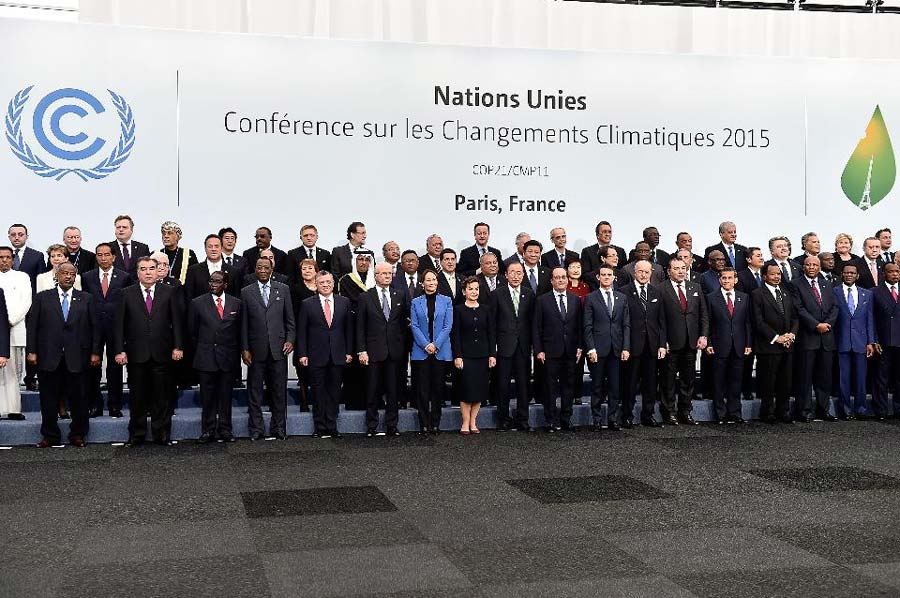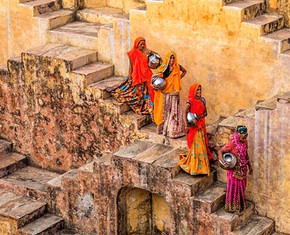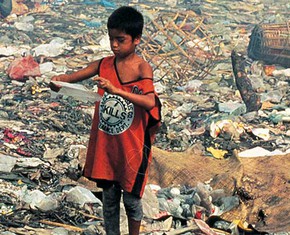The views expressed in our content reflect individual perspectives and do not represent the authoritative views of the Baha'i Faith.
Would it seem shortsighted, improvident and unsound, would it constitute a deviation from what is right and proper, if we were to strengthen our relationships with neighboring countries, enter into binding treaties with the great powers, foster friendly connections with well-disposed governments, look to the expansion of trade with the nations of East and West, develop our natural resources and increase the wealth of our people? – Abdu’l-Baha, The Secret of Divine Civilization, pp. 14-15.
Within the past few decades, unlike any other time in human history, the countries of the world have begun truly working together to reach some important goals—and yet few people seem to know it. Would you like a few examples?
Recently, the world’s nations have signed an enormous number of treaties, multilateral pacts and agreements covering the areas of human rights, international trade, terrorism, the law of the sea, mutual disarmament, diplomatic privileges and immunities, and peace.
From 2003 to 2005, for instance, the countries of the world signed and put into effect the World Health Organization’s first global public health treaty, the WHO Framework Convention on Tobacco Control—to “protect present and future generations from the devastating health, social, environmental and economic consequences of tobacco consumption and exposure to tobacco smoke.”
In 2008, all of the countries in South America signed the UNASUR treaty, which established, for the first time ever, a European Union-like supra-governmental entity called the Union of South American Nations.
In 2010, an overwhelming majority of the member states of the United Nations agreed to establish a Global Plan of Action to Combat Trafficking in Persons, designed to fight the terrible human trafficking and slave trade that still plagues the world.
In December of 2015, the world’s nations unanimously signed the Paris Climate Accords, the historic and unprecedented global treaty designed to reduce carbon emissions and mitigate the effects of climate change.

We—meaning the people and their governments all over the planet—have seen fit to enter into binding peace and disarmament treaties, into treaties and international agreements regarding the rights of women and the disabled, and into various pacts on human rights, biodiversity and the fair treatment of refugees. All of these treaties and agreements bind the world together as never before.
As a result, we haven’t had a world war in 70 years—but we still have many regional and civil wars raging. Despite those battles, the UN reports that, in aggregate, the world has one of the lowest levels of armed conflict at any time in the last two centuries. We all know that the civil wars in places like the Central African Republic and Syria have had terrible consequences, and we need to stop them. How can we do that? Concerted international effort—no other way will work. Treaties can have enormously positive consequences, but they don’t have a particularly good track record at maintaining world peace. What will? Here’s the Baha’i principle:
The time must come when the imperative necessity for the holding of a vast, an all-embracing assemblage of men will be universally realized. The rulers and kings of the earth must needs attend it, and, participating in its deliberations, must consider such ways and means as will lay the foundations of the world’s Great Peace amongst men. Such a peace demandeth that the Great Powers should resolve, for the sake of the tranquillity of the peoples of the earth, to be fully reconciled among themselves. Should any king take up arms against another, all should unitedly arise and prevent him. If this be done, the nations of the world will no longer require any armaments, except for the purpose of preserving the security of their realms and of maintaining internal order within their territories. This will ensure the peace and composure of every people, government and nation. – Baha’u’llah, Gleanings from the Writings of Baha’u’llah, p. 249.
No single treaty can accomplish this new, unified state of human governance. As the Universal House of Justice said in its Promise of World Peace message in 1985, only a true transformation in the human heart can produce such an enduring peace:
…the abolition of war is not simply a matter of signing treaties and protocols; it is a complex task requiring a new level of commitment to resolving issues not customarily associated with the pursuit of peace. Based on political agreements alone, the idea of collective security is a chimera. …the primary challenge in dealing with issues of peace is to raise the context to the level of principle, as distinct from pure pragmatism. For, in essence, peace stems from an inner state supported by a spiritual or moral attitude, and it is chiefly in evoking this attitude that the possibility of enduring solutions can be found. – p. 3.
In the exact same way, since climate change is a universal problem and the atmosphere doesn’t recognize or respect national borders, we need global agreement on what to do to reverse and ultimately stop our bloated carbon consumption—but even more, we need a fundamental change in human behavior, which begins with each of us and our relationship to Mother Earth.
We’re getting there—for the first time in human history, a global treaty on climate has happened at the recent Paris Climate Accords. Think about it. One hundred and ninety-six nations agreed on something—and not on something easy, but on something hard. They agreed to limit their burning of fossil fuels and ultimately phase them out before the end of this century—despite the fact that fossil fuels fuel their economies. This indicates more than just the signing of a treaty—it proves that minds and hearts have begun to think differently, that people everywhere have begun to see themselves as world citizens, deeply concerned about the planet and its environment.
Those Climate Accords and the emerging mindset that made them possible, I would submit to you, are remarkable—incontrovertible evidence of the emerging recognition of world unity. This has never happened before. If the world’s nations can come to unanimous agreement on one thing, that means we can do it elsewhere. We can create a lasting global peace and an end to war—it just takes that gradual opening of the human consciousness to the waiting possibility in front of us.
If you’d like to get involved with this movement, with this exciting new thrust toward unity in the world, start with the Baha’is, who are doing everything they can to bring it about.
You May Also Like
Comments

















You must be aware that it was about 3 deg ...warmer in Britain 1000 years ago and grapes flourished as far north as Scotland? It was a time of great prosperity, --witness the great Churches which were built in that era.
You want to discuss?